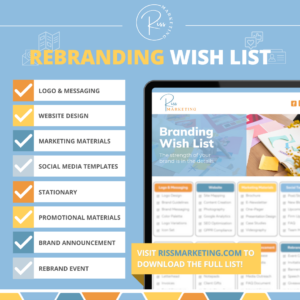The majority of companies are not taking advantage of campaign-driven marketing. “Launching a new marketing campaign” sounds like a time-consuming and expensive undertaking, when in reality, it’s an ideal solution for businesses that don’t have a large marketing team, but who still want to incorporate effective marketing into their growth strategy.
What Is Campaign-Driven Marketing?
Simply put, a marketing campaign is a collection of activities focused on a particular topic and targeting a specific audience. What it’s NOT is an individual marketing tactic adopted for a general purpose – for example, developing a social media calendar or adding a new landing page to the website.
For example, a campaign’s goal could be anything from introducing a new line of business to raising awareness for a company’s new location.
What Are The Benefits?
Focused Approach
A business dabbling in all of the popular marketing tactics, or those who are trying to be all things to all people will find themselves overwhelmed and ineffective. A narrowed focus can be supported by an achievable list of targeted tactics and creates results that can be tracked more precisely.
Big Picture Thinking
If you gathered all of the company’s leaders into a room and asked each person to identify the company’s top three business goals or its target clients, would they all have the same answer? This process challenges company leadership to identify the primary business goals that are currently most relevant to the business and which specific audiences will help achieve those goals.
Proactive vs. Reactive
We have a new service offering – add it to the website. We have an upcoming event – put it in the newsletter. This article is interesting – let’s post about it. All businesses find themselves reactively promoting information or events at one time or another. When a campaign is underway, it encourages the company to proactively create opportunities and to develop purposeful client resources.
Scalable
A campaign doesn’t need to be all encompassing right away. Actually, I would advise against it. The first rule of any campaign is to make sure it’s realistic. As the campaign gains momentum, a successful campaign can easily grow in scale and budget if the measurable results justify the investment.
What Are The Steps To Develop A Marketing Campaign?
Step 1: Define Business Goals
These vary from campaign to campaign and should be clear and specific. Goals such as “generating more clients” or “enhancing brand awareness” are too vague, which makes it difficult to map out an effective plan. What kind of work or clients is the business aspiring to attract? What do you want prospects to know about the company’s capabilities?
Step 2: Identify the Target Audience
Who are you trying to reach? What are their pain points and what solutions does your company provide? As was mentioned before, identifying wide-ranging audiences like “business owners” or “employees” makes it difficult to develop content that will resonate with them. A good starting point is to look back on your past clients to start developing useful client persona profiles.
Step 3: Develop a Content Strategy
This is the most critical step of the process. You can do everything right, but if you don’t develop the right content to support your campaign, it won’t succeed. Clients want to work with businesses that they perceive as trusted experts. Developing informed, easy-to-consume, and timely content helps to accomplish this. Examples of content includes:
- Client Alerts
- Webinars
- Workshops
- Roundtables
- Checklists
- Resource Guides
- Case Studies
- Explanation videos
- Podcasts
- Infographics
Step 4: Choose the Distribution Channels & Measure Results
Even when you create the strongest content, it won’t have the impact needed if it doesn’t reach the desired audience. Whichever distribution channels the company currently uses or decides to start using, it’s critical that it can be measured.
Takeaway
A campaign-driven marketing strategy can be used by businesses of any size, but it’s an ideal solution for smaller businesses that don’t have large in-house marketing departments and are often feeling stretched thin when it comes to developing and implementing a robust marketing strategy.
My advice is to walk before you run. Pick one campaign to plan and execute, and carefully measure the results. This will enable you to determine the best approach for your marketing and business development initiatives in the future.




